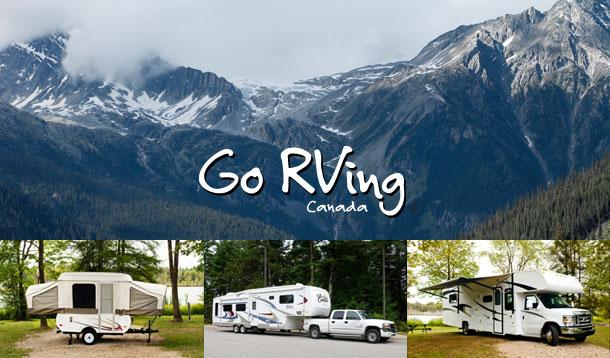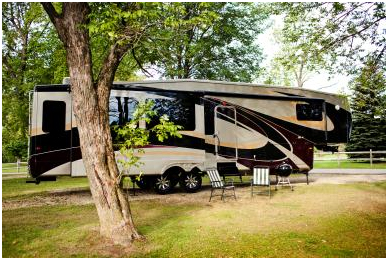
When considering what type of Recreational Vehicle is right for you, there are a number of questions to ask yourself. For the first-timer, consider what it is that interests you in the RV lifestyle. If seeing the world or the journey itself is the draw for you, then a motorized vehicle might be what you’re looking for. If you plan to do a lot of parking or stay for long periods of time in one place, then it might make more sense to think about a towable or park model. It really depends on how you plan to use the RV, and this actually changes over the lifetime of RVers. Below are just a few examples of some of the different types of RVs and options you might consider:

Usually it starts with young families or couples wanting to get back to nature but not wanting to fully leave the comforts of home. And in the beginning families are often limited by budget. You’ll often see a lot of first-time RVers start with the folding camping trailer for this reason. Also known as pop-up or tent trailers, these are lightweight units that can be towed by virtually any car and really appeal to first-time buyers or families with young children. Fold-downs can be found in many lengths with options such as hot water, refrigerator, air conditioning and washrooms. People really like the compact size that offers quick setup and easy storage between uses. Then what you’ll see is that as the kids and the needs of the family grow, your RV choice will also expand over the years.

The Travel Trailer is the most common RV. Smaller models can be towed by mid-size vehicles: the family car, SUV, or pickup truck. There are restrictions on how much weight your vehicle can pull, so it’s important to check with your dealer for your vehicle's tow rating. The vehicle you plan to pull the RV with will dictate what you can buy because of weight. So if considering a towable model, the next thing to ask yourself is what do I have to tow it with? The benefit with these types of RVs is that they are detachable from the tow vehicle, so you have the freedom to use your car or truck for shopping or sightseeing.

Larger travel trailer models called Fifth Wheels must be towed by heavy-duty vehicles, although do not require a special highway movement permit. Towed by pick-up trucks with a special “fifth wheel” hitch, Fifth Wheel travel trailers generally have taller ceilings and more slide-out rooms. They are the most spacious RVs available and often these are set up to serve as a seasonal home, similar to Park Models.

Motorized RVs have their own advantages as well. With motorized, the holiday starts the moment you get in the vehicle, before you even leave the driveway. You can enjoy while you travel — you can watch TV, make lunch, go to the washroom.
There are three main types of motorized RVs… Class A Motorhome, Class B Campervan and the Class C Mini-Motorhome.

Really the next considerations get to the specifics around your family. So you start to think about how many do I have to sleep and how do I have to sleep them. You think about the floorplan, like where is bathroom and do you have to go through someone’s bedroom to get to it at night. How much storage room will you need? How much cooking do you plan to do? Do you need a good entertainment centre? Do you just need the basics or want real luxury? Many first time RVers will start with a model that provides just the basics. But you can get everything from washer and dryer and whirlpool bath, to Internet-ready computer station, to fireplace, and rooftop skydeck. They have all been designed to fit particular niche and need. People change RVs every 3-4 years because needs change. Very different when talking about adult couples traveling then parents with kids.
All three are good options. If you want the warranty or don’t like the idea of using someone else’s, then you’ll likely go for new. It is quite affordable to buy new. You can get better financing options on new RVs because of the longer amortization period. But used RVs are cheaper, and many dealers offer service plans and extended warranties on used models as well. Buying used is sometimes just as good, as the RV is often not used more than a few times a year. The traditional RVer uses it about a weekend a month with maybe one week holiday during the year. Renting is a good option if it’s your first time taking an RV trip. It will give you the opportunity to decide if RVing is for you and help choose what model works best for your needs before buying. Renting is also a good option if you’re planning to fly to another part of the country to start your RV journey.
Overall, you can see there are a lot of things to think about when selecting your RV, but on the flipside that means there are a lot of options available too! Your best bet is to chat with an RV dealer in your area as he or she can guide you through all these questions and considerations.

This is proudly sponsored by our friends at Go RVing Canada.
www.gorving.ca